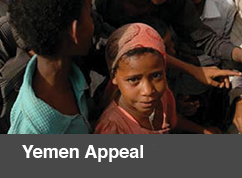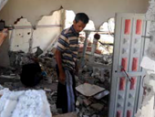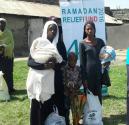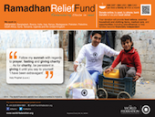In July and August 2014, hostilities in the Gaza Strip escalated after a period of relative calm following the November 2012 attacks.
For many years, international and civil society organizations have been marking ‘World Toilet Day’ all over the world. However it was not until July 2013 that the United Nations officially declared 19 November as ‘World Toilet Day’. The objective of World Toilet Day is to make sanitation problems a global priority and bring about changes in behaviour and policy on issues ranging from improving water management to ending open defecation.
Through initiatives such as ‘Sanitation For All’ and the ‘Sanitation Drive to 2015’, the UN has developed a goal to end open defecation by 2025.
World Toilet Day intends to raise awareness of sanitation issues, including hygiene promotion and the provision of basic sanitation services.
Did you know?
The lack of proper sanitation facilities has a massive impact on human health:
• 2.5 billion people do not have proper sanitation
• 1.1 billion people still defecate in the open
• Each year more than 800,000 children under 5 die needlessly from diarrhea
• One in three people on this globe do not have access to a toilet
• In Africa, 215 people die every hour from diseases linked to poor sanitation, poor hygiene and contaminated water
• Access to latrines raises school attendance rates , especially for girls
• Clean water, sanitation and hygiene have the potential to prevent at least 9.1% of global disease and 6.3% of all deaths
Not only does lack of proper sanitation impact health, it also affects the dignity and security of individuals, and has a huge effect on social and economic development.
The World Federation and World Toilet Day
Similar to several charities around the world, The World Federation takes part in World Toilet Day every year. One of the initiatives of The World Federation is to build sanitation facilities in developing countries, a goal that goes hand in hand with meeting the basic needs of people in third world countries and improving their health and well-being.
Through the Ali Asghar Water Appeal (AAWA), The World Federation aims to provide struggling families access to clean water and adequate sanitation facilities across developing countries. Recently, The World Federation assisted in rehabilitating 25 wells in Northeast Kenya, and last February 21 lavatories were constructed in a village in Sindh, Pakistan.
How can you help?
The World Federation’s ongoing initiative – the Ali Asghar Water Appeal (AAWA) needs your support. Working in partnership with The Africa Federation, CoEJ, NASIMCO and Pakistan Federation, The World Federation is working hard to fulfill water and sanitation rights in the developing world. Your donation allows us to build water wells and toilets in areas of deprivation. Please support the Ali Asghar Water Appeal with a donation today.
DONATE ONLINE:
Donate in Europe
Donate in North America
Donate in the rest of the World
JAMAAT TREASURER:
Donate directly to your Jamaat Treasurer
For more information or to sponsor a water well or sanitation project, please email [email protected]
Related News
See some pictures from our Ramadan Relief distribution this year and watch our advert on AhlulBayt TV.
The month of Ramadhan is filled with the mercy and blessings of Allah (swt). Increasing our good deeds, giving charity and helping others are among the best actions we can perform to seek nearness to the Almighty.











